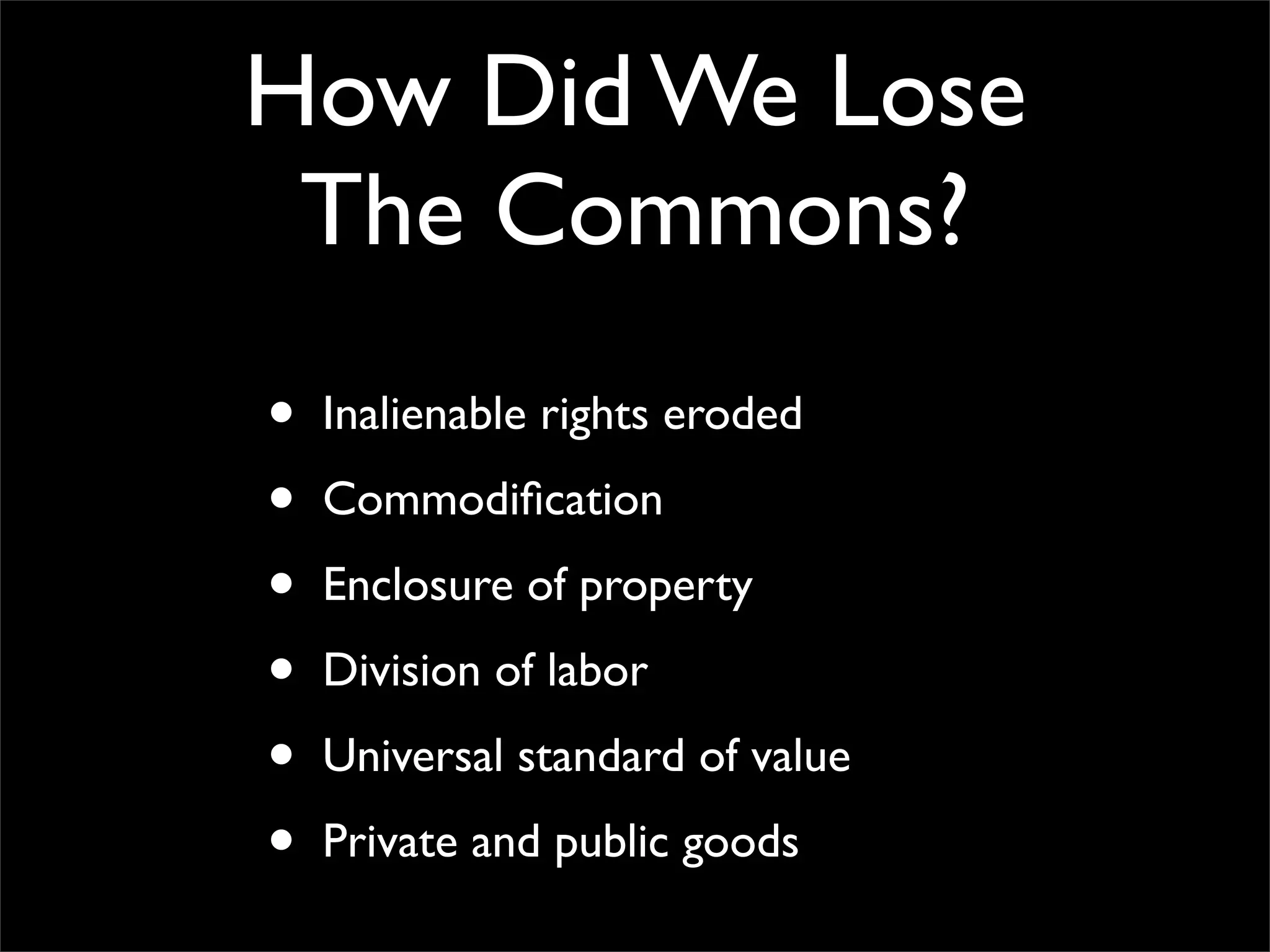1. The document discusses the "tragedy of the commons" where shared resources like pastures are overexploited because individuals act in their own self-interest.
2. It proposes occupying and organizing commons through informal practices, norms, and rules so that resource users become producers and stewards of their own resources.
3. Key elements of commons include resources, community, boundaries, rules, and value, with the goal of devolving power to local communities and restoring democratic decision-making.

































